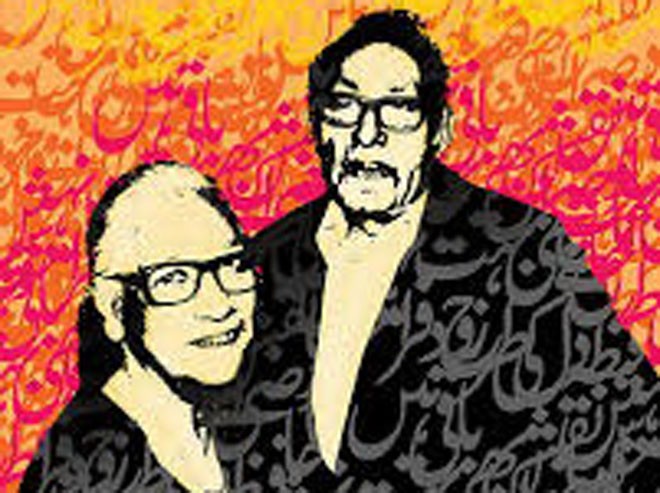
A compilation of some thought-provoking essays, translations, short stories and miscellaneous writings of the literary giant

Akhtar Hussain Raipuri was a man of diverse talents: a leftist scholar, lexicographer, critic, fiction writer, translator and a polyglot. He opened his eyes in tumultuous times when there were cataclysmic changes in our cultural and political history. He was a close observer of all these developments as well as an astute chronicler of his era.
His extraordinary autobiography Gard-e-Rah can be read as a testament of a thoroughly well-read scholar who espouses the causes of peace, harmony and prosperity for all the humanity. It is undoubtedly one of the best personal narratives of his time in which the author does not ruthlessly pursue his ideological stance; rather you find yourselves face to face with the era of which he was a part as well as his interaction with great people he chanced to meet. His pathbreaking treatise Adab Aur Zindagi ruffled many a feather at the time and kickstarted many controversies. Here he is at his best; he skilfully argues about the aims of art and literature and builds up a solid case with the help of his immaculate knowledge and scholarship. Though much time has passed and some of the issues have already been consigned to the dustbin of history, still it has plenty of relevance.
In the book that we aim to review Adab Aur Zindagi Aur Deegar Tehreerain, the compiler, Dr Humaira Ashfaq, who is assistant professor of Urdu at International Islamic University Islamabad, has included some thought-provoking essays, translations, short stories and miscellaneous writings of literary giant Akhtar Hussain Raipuri.
There is a whole section devoted to the personal life of Akhtar Hussain Raipuri and one finds a vintage gentleman who is liberal, friendly, and accommodative as far as the points of view of others are concerned. He wasn’t like those leftists who term socialism as the only remedy for humanity and close the doors of introspection and dialogue. On the contrary, he was a mild-mannered man who read till his last breath without forcing his opinion on others.
His wife Hamida Akhtar Hussain Raipuri nostalgically recreated the whole era in her book Humsafar and also in Nayab Hen Hum. She talks about her husband, his daily routine, his reading habit, his socialising and unusual craze for new books. Akhtar Hussain Raipuri had turned almost blind during the last years of his life. But he was not one to give in so easily so now it was the duty of his illustrious sons Irfan Husain (noted English columnist) and Salman Husain to read him the new books of his choice. His wife narrates how excited he was on receiving the twelve volumes of Marcel Proust on his birthday. He avidly started read the first two volumes and then suddenly lost his eyesight.
Hamida Akhtar Hussain shares how the task of reading the next volume was assigned to his son who took it up but left it as he found the text of Proust too philosophic and complex. Then another family friend took up the job and she started reading Proust aloud to Akhtar Hussain Raipuri. Analysing his fiction, Dr Anwar Ahmad writes that unfortunately critics didn’t give due space to the short stories of Akhtar Hussain Raipuri. He picks up many stories from his two collections of stories and finds that even though their tone is a bit loud, they are a pitiless expose of ‘Mullahs’ as well as the so called elites of the society. ‘Mujhay Janay Do’ has been discussed by Dr Anwar Ahmad in detail which is a powerful slap on the doubletalk of the clerics.
There are five short stories reproduced in this volume so that the readers may acquaint themselves with the fiction of Raipuri. Another special feature of the volume is his translations of the great Bengali poet Kazi Nazrul Islam who was a great source of inspiration and motivation for Raipuri. There is a long essay by Raipuri on the great poet in the volume also in which the writer pays a big tribute to the Bengali giant for giving a new diction and bold style to Bengali poetry.
Others essays are on Russian literature, the future of Urdu, the imagination of woman in Urdu poetry etc.
The volume under review brings back memories of a giant of a scholar and his writings which continue to appeal after a lot of time has whizzed past. One personally feels like re-reading Gard-e-Rah which is a sophisticated narrative of an intellectual of international standing.